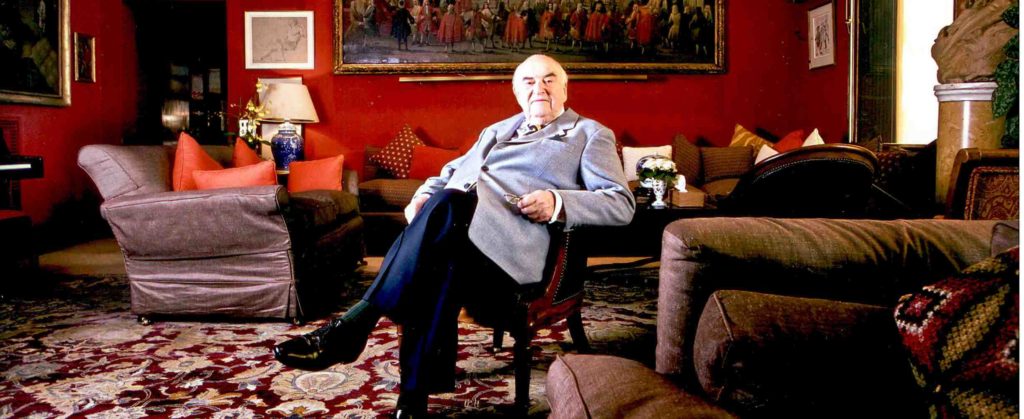George Weidenfeld was born in Vienna in 1919. After graduating from the University of Vienna, he attended the Consular Academy (now known as the Diplomatic Academy of Vienna) and moved to the UK following the Anschluss by the Nazis in 1938.
He first worked at the BBC’s monitoring service and later as a diplomatic correspondent for Europe. In 1945, George Weidenfeld founded the publishing firm Weidenfeld & Nicolson with Nigel Nicolson. Four years later, he temporarily put his business interests on hold to become political adviser and Chef de Cabinet to Chaim Weizmann, Israel’s first President.
As a publisher, he built long-lasting relationships with a large number of statesmen, publishing the memoirs of Harold Wilson, Konrad Adenauer, Shimon Peres and other influential figures of the second half of the twentieth century such as Henry Kissinger.
He had a remarkable curiosity and a great appetite for intellectual debates and discussions, including with his contradictors and enemies. As a student in Vienna, the young Weidenfeld challenged and fought a Nazi supporter in a duel. The confrontation ended in a draw with only a few small injuries and the two men went on their separate lives. After the war, George Weidenfeld tracked down his old foe and met with him in Vienna. “He had lost a leg in the war and was very emaciated – so I plied him with sausages and beer and so on. It was the last time I saw him because he died shortly afterwards”, he later said. He also famously published the memoirs of former Nazi Minister Albert Speer: Inside the Third Reich.
George Weidenfeld was first and foremost a formidable thinker and a great networker, working tirelessly to build bridges between people from different circles in order to improve understanding of the critical issues that mattered to him: solidarity between the major religious faiths, Israel’s place in the world and European stability. It is from this insatiable quest for connecting people and for promoting multicultural dialogue that the Club of Three idea was born.

